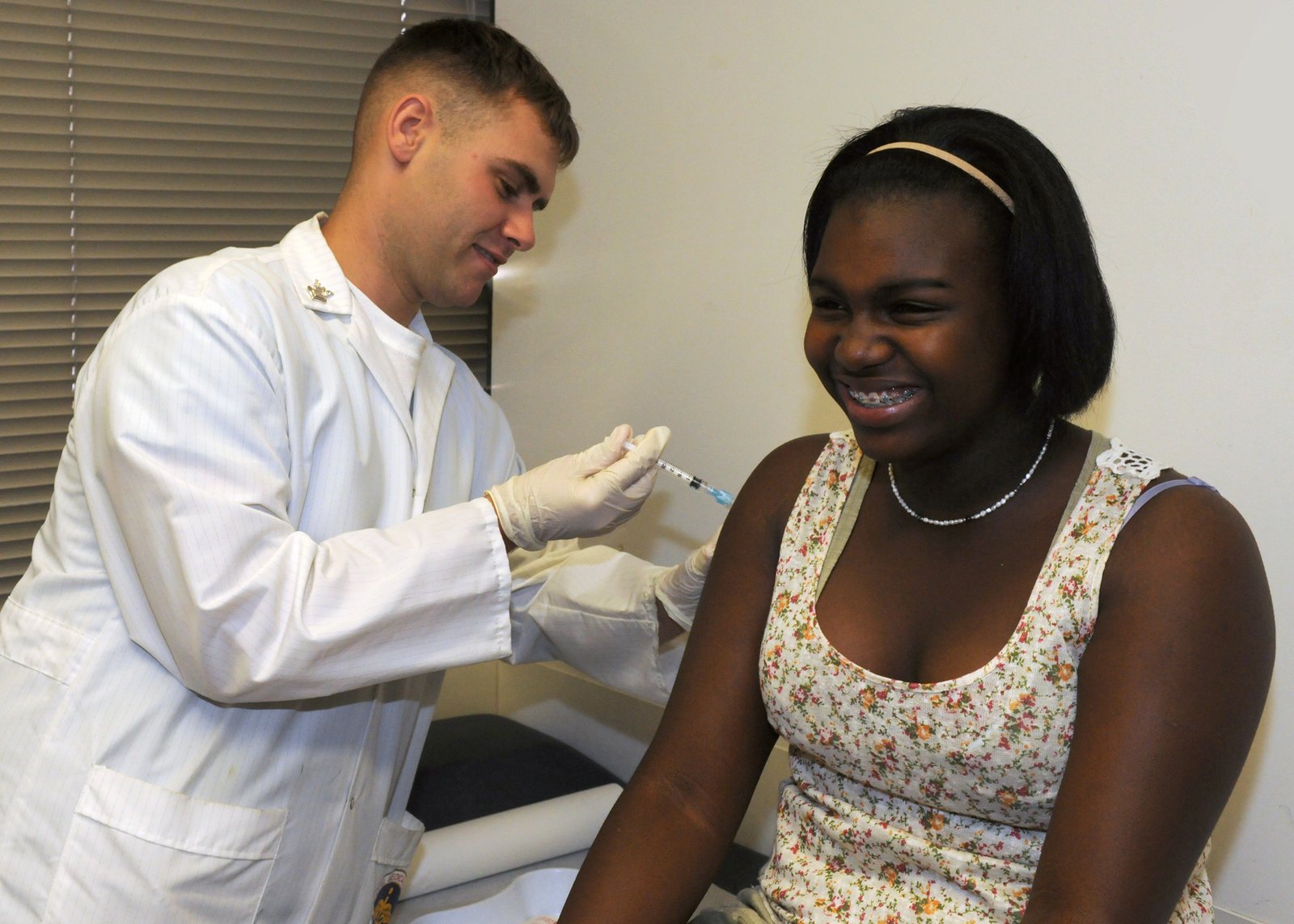Imagine this: you’re deep in your garden, hands caked in earth, when you feel the sharp sting of a rusty nail hidden in the soil. Or maybe you’re out on a hiking trail, miles from the nearest town, and a stray bramble leaves a nasty scratch. Most of us shake it off, slap on a bandage, and move on. But beneath the surface, an invisible threat could be lurking—one that doesn’t make headlines but can sneak up with devastating speed: tetanus. What if you’re overdue for a tetanus booster, and you have no idea? It’s a chilling thought, but one that could save your life. Let’s pull back the curtain on tetanus, why boosters matter, and why so many people are unknowingly at risk.
The Silent Danger Lurking in Everyday Life
Tetanus isn’t a disease that most people talk about over coffee. Yet, the bacteria that cause it—Clostridium tetani—are everywhere. They live in soil, dust, and animal droppings, just waiting for a chance to sneak into your body through a wound. You might think you’d need a dramatic injury to be at risk, but even a tiny scratch or a splinter can open the door. The real danger is how quietly tetanus can strike. There are no “warning signs” in the environment, and you can’t see or smell the bacteria. This makes tetanus a silent enemy, hiding in plain sight.
What Exactly Is Tetanus?
Tetanus, sometimes called “lockjaw,” is a serious infection caused by toxins produced by the Clostridium tetani bacterium. Once inside the body, these toxins attack the nerves that control your muscles. The result? Painful muscle stiffness and spasms that can lock your jaw shut, twist your body into unnatural positions, and even stop you from breathing. Unlike many other infections, tetanus doesn’t spread from person to person. It’s a personal battle between you and what got into your wound. That makes individual protection—like boosters—absolutely crucial.
The Tetanus Toxin: Tiny but Terrifying

A single gram of tetanus toxin could kill over a million people. It’s one of the most potent toxins known to science, and it works by blocking the signals that tell your muscles to relax. This leads to uncontrollable spasms and rigidity. The horror stories from before vaccines existed are the stuff of nightmares—people suffering for days, unable to swallow, breathe, or move without agony. Thanks to modern medicine, most people have never seen a case in real life. But the bacteria haven’t gone anywhere. They’re just waiting for us to let our guard down.
How Long Does Tetanus Immunity Last?
Many people think that once they’ve had their childhood vaccines, they’re protected for life. Unfortunately, that’s not true for tetanus. Immunity from the vaccine fades over time, typically after about 10 years. That means if you haven’t had a booster shot in the last decade, your defenses may be dangerously low. It’s easy to lose track—after all, who marks their calendars for a shot they can’t see working? But the clock is always ticking, and the risk grows as time passes since your last dose.
Common Myths That Put You at Risk
There’s a surprising amount of misinformation floating around about tetanus. Some people believe you only need a booster if you step on a rusty nail. Others think that clean wounds or injuries indoors are safe. In reality, any break in the skin can be an entry point for the bacteria, and the cleanliness of the object doesn’t matter as much as whether the bacteria are present. Some even think tetanus is a thing of the past, wiped out by vaccines. The truth? Cases still happen every year, especially among adults who skipped their boosters.
Who Is Most at Risk?
You might be surprised to learn that adults are more likely than children to get tetanus. That’s because childhood vaccination rates are high, but adult booster rates lag behind. People who work with their hands—gardeners, farmers, construction workers—are at higher risk, but anyone can be exposed. Older adults, in particular, are vulnerable since immunity drops with age and many haven’t kept up with boosters. Even if you live in the city, a single careless moment with a kitchen knife or a fall on the sidewalk can put you at risk.
The Subtle Signs of Tetanus Infection
Tetanus doesn’t announce itself with a fever or a rash. Early symptoms are subtle and often mistaken for something else: stiffness in the jaw, muscle aches, and difficulty swallowing. As the toxin spreads, the spasms get worse, sometimes so severe they can break bones or cause breathing problems. The disease moves fast—symptoms usually appear within 3 to 21 days of injury, but by the time you realize what’s happening, it can be dangerously advanced. That’s why prevention through vaccination is so important.
Why Your Childhood Shots Aren’t Enough
Most of us got a series of tetanus shots as children, but few realize these shots don’t last forever. The standard schedule includes five doses in childhood, with a booster at age 11 or 12. After that, you need a booster every 10 years, but many adults forget or don’t know they need one. Life gets busy, and tetanus isn’t top of mind—until it’s too late. Without regular boosters, your immunity fades, and you become vulnerable all over again.
Booster Shots: The Lifesaver You Might Be Missing
A tetanus booster is a quick, simple shot that can save your life. It’s usually given as a combination vaccine with diphtheria and sometimes pertussis (whooping cough), known as Td or Tdap. The booster “reminds” your immune system how to fight off the bacteria, rebuilding your defenses. There’s no need to wait for an injury—getting your booster on time is the best way to stay protected. The shot itself is fast and causes little more than a sore arm, but the peace of mind is priceless.
How to Know If You’re Due
Let’s be honest: most people can’t remember the last time they had a tetanus shot. If it’s been more than 10 years, you’re probably due. After certain injuries—like deep cuts, punctures, or wounds contaminated with dirt—doctors may recommend a booster even if it’s been as little as five years since your last one. It’s worth checking your medical records or asking your doctor. Don’t rely on memory alone—when in doubt, it’s better to be safe than sorry.
Special Considerations for Travelers
Traveling, especially to rural or developing regions, can increase your risk of tetanus. Medical facilities may be limited, and exposure to soil and animal waste is more common. The World Health Organization recommends making sure your tetanus booster is up to date before any international trip. Even adventure travelers who pride themselves on “roughing it” shouldn’t gamble with their health. Packing a sense of adventure is great—just make sure you pack your immunity, too.
Tetanus in the Great Outdoors
Nature lovers are especially at risk for tetanus. Whether you’re camping, hiking, gardening, or just playing in the park, the opportunities for scrapes and cuts abound. Wild environments are full of the bacteria, and even the tiniest wound can be a ticket for infection. Outdoor enthusiasts should be extra vigilant about boosters, first-aid kits, and wound care. After all, the great outdoors is supposed to be a source of joy—not an unexpected trip to the emergency room.
Wound Care: Your First Line of Defense
If you do get a cut, the way you care for it can make a big difference. Cleaning wounds immediately with soap and water helps wash away dirt and bacteria. Deep, dirty, or puncture wounds deserve extra attention—don’t be shy about seeking medical advice, especially if you’re unsure about your tetanus status. While good wound care lowers your risk, it can’t guarantee protection if your immunity is low. That’s why the booster is still essential.
What Happens If You Get Tetanus?
Tetanus is a medical emergency that usually requires hospitalization. Treatment involves antitoxins to neutralize the toxin, antibiotics to kill the bacteria, and intensive care to support breathing and control muscle spasms. Recovery can take weeks or months, and some people experience long-term complications. Even with modern medicine, tetanus can be fatal—especially in older adults or those with weakened immune systems. It’s a nightmare scenario that a simple shot could prevent.
Pregnancy and Tetanus: Protecting Two Lives
Pregnant women are recommended to receive a Tdap booster to protect both themselves and their newborns. Newborns are especially vulnerable to tetanus, and maternal vaccination can pass on protective antibodies. In some parts of the world, maternal and neonatal tetanus are still major causes of death. Getting vaccinated during pregnancy isn’t just about you—it’s a gift of protection for your baby, too.
Why Herd Immunity Doesn’t Apply
With diseases like measles or polio, herd immunity protects communities by stopping the spread. But tetanus lives in the environment, not in people, so herd immunity doesn’t work. Each person’s protection is their own responsibility. This makes maintaining up-to-date boosters even more important—there’s no safety in numbers here, only in your own immune system.
Global Efforts to Eradicate Tetanus

Around the world, organizations have worked tirelessly to reduce tetanus cases, especially in newborns and mothers. Progress has been dramatic, but the disease hasn’t disappeared. In places with limited access to vaccination, outbreaks still occur. These global efforts highlight how easy it is to take protection for granted. The fight against tetanus isn’t over, and the best way to honor that progress is to keep ourselves protected.
The Cost of Forgetting: Real-Life Stories

It’s easy to think of tetanus as something that happens to “other people.” But every year, cases pop up in ordinary adults who simply forgot a booster. There are stories of gardeners, hikers, and even retirees who wound up in intensive care after a routine scrape. The common thread is always the same: “I didn’t know I needed another shot.” These stories are reminders that tetanus doesn’t care about your intentions or your plans—it only cares about opportunity.
The Simple Solution: Put It on Your Radar
Adding a tetanus booster to your to-do list could be the easiest, most important health decision you make this year. It takes just a minute to ask your doctor or check your records. Put a reminder in your calendar for next time. Share the knowledge with friends and family—after all, we’re all in this together, even if tetanus is a solo threat. Protecting yourself is a quiet act of courage, like locking your door at night or wearing a seatbelt. It’s simple, but it could save your life.
Don’t Leave It to Chance: Take Control of Your Immunity
The world is full of hidden risks, but the power to protect yourself is right in your hands. Don’t let tetanus be the threat you forgot about until it was too late. A quick, nearly painless booster can keep you safe from a disease that’s as old as dirt and just as stubborn. The next time you’re tending your roses, fixing a fence, or exploring a new trail, you’ll know you’ve got invisible armor. Isn’t peace of mind worth a tiny pinch?




